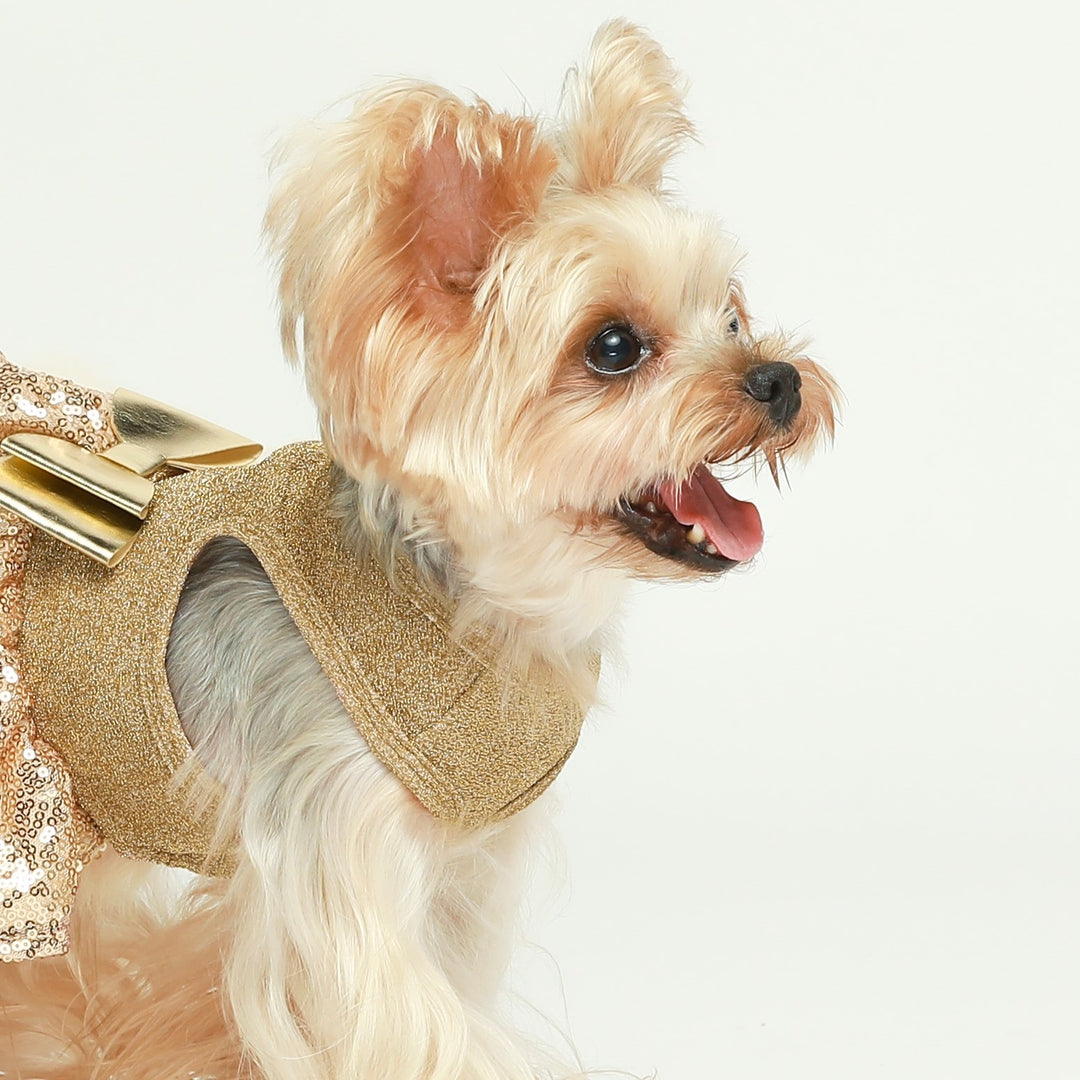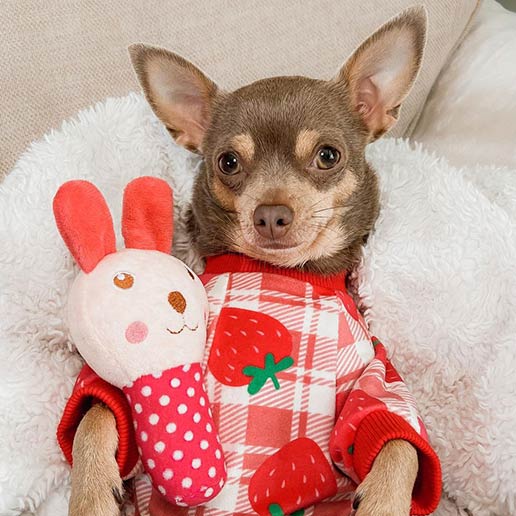How to Feed Sick Dogs with No Appetite
Seeing your dog sick is hard enough, but it's even tougher when they won't eat. Not eating can slow down their recovery, and you might feel stuck wondering what to do. This guide is here to help. We'll look at why your dog may have lost their appetite, and we'll give you simple tips and tricks to encourage them to eat. By the end of this guide, you'll have the know-how to support your dog in getting the nutrition they need to bounce back to health.
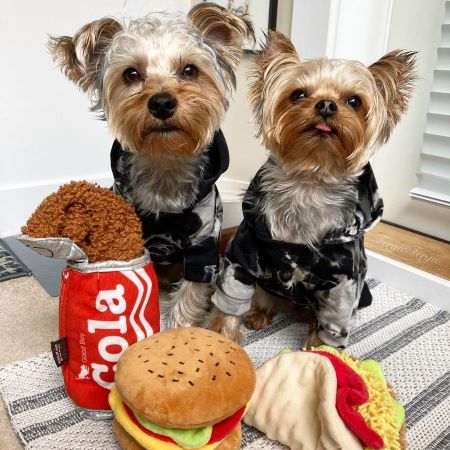
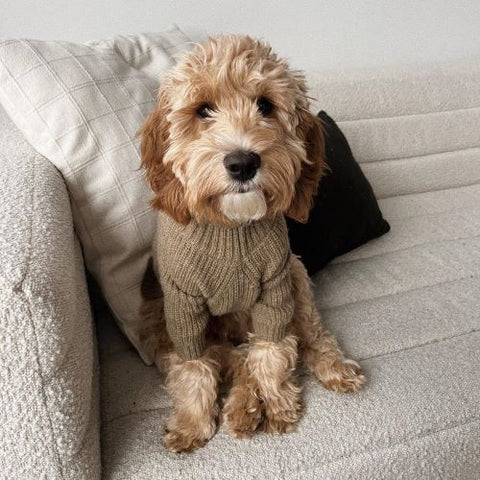
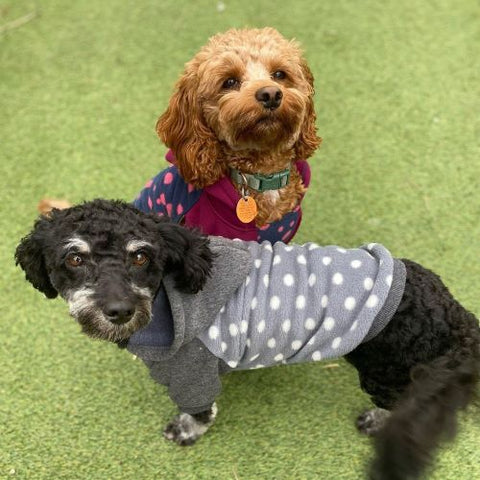



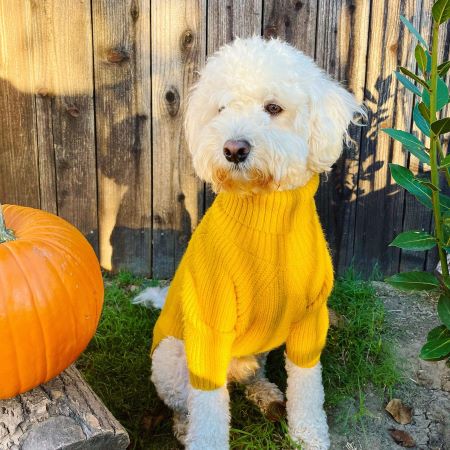

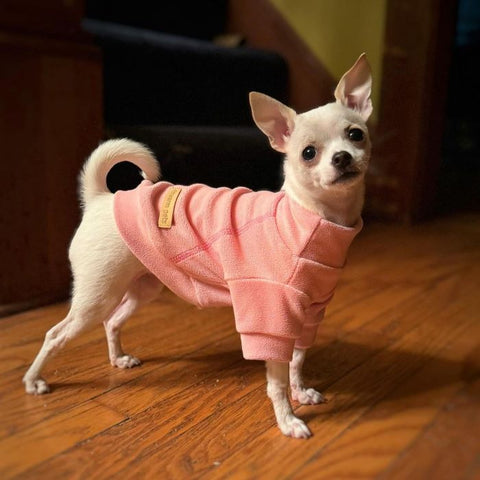
Keep an eye on how they're doing, jot down what they're eating, and always be ready to switch things up to keep them interested in food. And remember, your vet is like your co-pilot here-they're there to help you figure this out.

Instagram:fergiefergiechomper
Yorkies in Tie Dye Dog Hoodies
Why Your Dog Won't Eat
Sometimes, your dog might not be interested in their food, and it can be tough to figure out why. Here are some common reasons that could explain your dog's lack of appetite:-
Health Issues: When dogs feel ill, they may not want to eat. This could be due to:
- Stomach upsets or digestion problems
- Dental pain or mouth injuries
- Serious illnesses like infections or chronic diseases
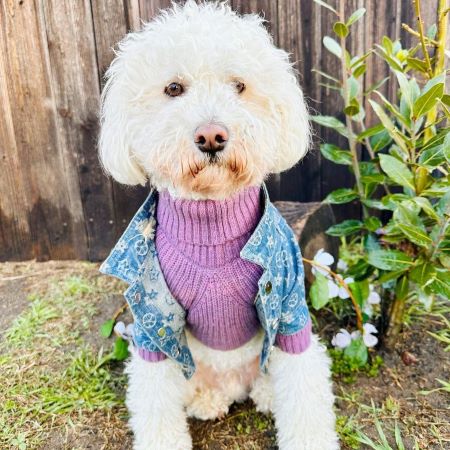
Instagram: charles_maltipoo
-
Emotional Stress: Dogs can be sensitive to emotional changes which might affect their desire to eat, such as:
- Anxiety from loud noises or a new environment
- Depression due to a loss or change in the household
- General stress from a disrupted routine
-
Dietary Dislikes or Changes: Sometimes your dog might just be picky or reacting to:
- A new type of food they don't like
- Recent changes in their diet that they're not used to
-
Medication Side Effects: If your dog is on medication, some drugs can cause:
- Nausea
- Changes in taste
- Reduced hunger as a side effect

Instagram: cockapoo.gus_
Cockapoo in a Cozy Turtleneck Knitted Dog Sweater
Understanding the root cause of why your dog isn't eating is key to figuring out how to help them. It's always best to consult with your vet if you're unsure, as they can provide insights specific to your dog's health needs.
Cockapoo in a Cozy Turtleneck Knitted Dog Sweater
When to Get the Vet Involved
Sometimes, a dog's loss of appetite can be solved with simple home remedies and TLC, but other times it's a signal that professional help is needed. It's important to know when it's time to call the vet. Here's what to watch for:- Duration: If your dog has skipped meals for more than 24 hours, it's time to get in touch with a vet.
- Accompanying Symptoms: Look out for signs of illness like vomiting, diarrhea, lethargy, coughing, or nasal discharge.

Instagram: edithandruth
- Behavior Changes: If your dog seems depressed, uninterested in usual activities, or shows any signs of pain or discomfort, these could be indicators of a serious issue.
- Age and Health Status: Very young, elderly, or dogs with pre-existing health conditions are more at risk when they stop eating.
Feeding Tips for Sick Dogs Who Won't Eat
When your dog is sick and not interested in food, it's like a puzzle you need to solve. They still need the right stuff in their body to help them heal. Let's break down how you can help your dog get the nutrients they need, even when they don't feel like eating.- Essential Nutrients and Calories: Think of nutrients as the building blocks that help your dog recover. Even if they eat less, what they do eat should be packed with goodness. Calories are like fuel - sick dogs don't move much, but they still need energy to fight off illness.

Instagram: wakanda_shihtzu
- What to Feed Them: Choosing the right food can make a difference. Here are some options:
- Homemade Meals: Some gentle, home-cooked meals can be comforting. Think boiled chicken and rice - easy on the stomach and usually tempting even for picky eaters.
- Special Dog Foods: There are special canned or dry foods made just for sick dogs. They're full of all the good things your dog needs and are made to be extra tasty.
- Liquids and Soft Foods: If your dog says no to solids, there are liquid meals or mushy foods that slide down easily and keep them hydrated.
- To Encourage or Not to Encourage: It's a tricky call - do you try to make your dog eat or wait until they want to? Force-feeding can stress them out, but waiting too long isn't good either. It's about balance. Offer food, try to make it fun, and talk to your vet about what's best for your buddy.

Instagram: georgiee.the.cockapoo
Cockapoo in a Turtleneck Knitted Dog Sweater
Knowing the best way to feed your dog when they're not feeling great can seem tough. But with these tips and a little patience, you'll find the right mix to tempt their taste buds and get them the nutrition they need to start getting better.
Cockapoo in a Turtleneck Knitted Dog Sweater
Easy Ways to Get Your Sick Dog Eating Again
When your dog is under the weather and not keen on eating, you'll need to be a bit of a detective and a cheerleader to get them munching again. Here are some simple tricks:- Set Up a Cozy Dining Spot: Dogs can be picky about where they eat, especially when they're not feeling well. Find a quiet corner where they can eat without too much going on around them.
- Warm Things Up: Dogs find warm food tempting because it smells stronger and tastes better. A quick zap in the microwave could do the trick.

Instagram: koaanddaisy
- Hand Feeding and Tasty Extras: Sometimes, a little hand-feeding can show your dog it's okay to eat. You could also sprinkle something delicious on top of their regular food – like a bit of cooked chicken or a shake of cheese.
- Keep Meal Times Regular: Stick to a routine with feeding times. It helps your dog know when to expect food and keeps their body clock in rhythm.
- New Food Wonders: Introducing something new can pique their interest. But go slow – a little bit at a time so you don't upset their tummy.
Special Care for Special Needs
Certain health problems mean you've got to tweak how you feed your dog:- Special Health Conditions: If your dog has an illness like kidney disease or cancer, they might need a special diet. Your vet can advise you on what's best.

Instagram: charles_maltipoo
- Dental Troubles: For dogs with sore mouths or teeth, softer foods that are easy to chew can make all the difference.
- Staying Hydrated: Eating less can mean drinking less, too, so make sure your dog has plenty of fresh water available.
Helping Your Dog Eat When They Can't Do It Alone
Sometimes, you may need to help your dog eat. This is called assisted feeding: Knowing When: If your dog hasn't eaten for a while, despite all your best efforts, it might be time for assisted feeding. This is something to talk over with your vet.
Instagram: brendaseidman_
Dog in a Pink Luxury Faux Furred Sweater
How To Do It:
- Syringe Feeding: A syringe can gently squirt liquid food into your dog's mouth.
- Tube Feeding: For more serious cases, vets might place a tube that goes directly to the stomach.
- Pros and Cons: Assisted feeding can be lifesaving, but it's important to do it right to avoid causing stress or discomfort.
Keeping Track of Your Dog's Eating Journey
Watching how your dog does over time can help you and the vet understand what's working:- Food Diary: Write down what your dog eats and when – it can show patterns you might miss otherwise.
- Watch for Good and Bad Signs: Is your dog getting perkier? Are they back to playing with their toys? Or are they still off their food and looking sad? These are clues about how they're doing.

Instagram: my.man.mochi
- Tweaking the Plan: Based on how your dog reacts, you might need to change things up with their food and feeding times.
Get Your Sick Dog to Love Food Again
Getting a sick dog to eat can be tricky, but it's doable with some love and clever tricks. Your dog not wanting to eat is their way of saying, "Hey, I don't feel so good." But by trying different things like making their spot for chow time cozy, heating up their food, or even helping them eat when they just can't on their own, you can make a big difference.
Instagram: willow.the.adventurer
Keep an eye on how they're doing, jot down what they're eating, and always be ready to switch things up to keep them interested in food. And remember, your vet is like your co-pilot here-they're there to help you figure this out.









